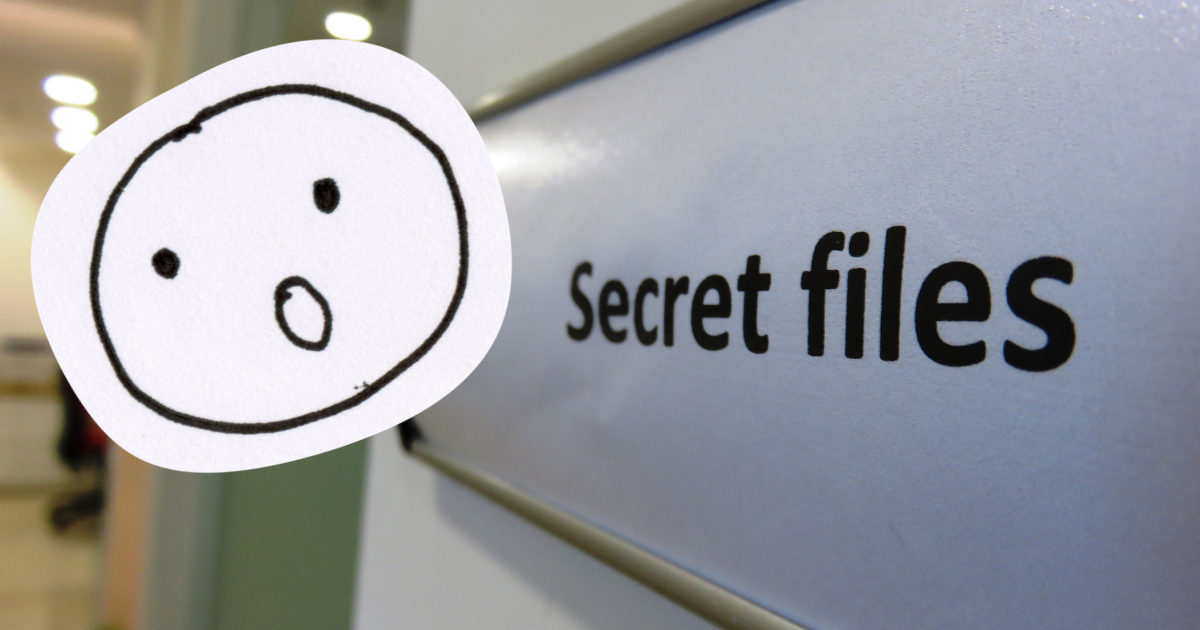Baby Thomas Arrives: Carrollton Couple Celebrates Son’s Birth, and Begins Waiting For The End

T.K. Laux hovered in a blue scrub shirt as his wife, Deidrea, grimaced and panted through contractions. A steady sha-thump, sha-thump, sha-thump vibrated from speakers in labor and delivery room 23 ? the reassuring sound of their unborn son’s heart.?
“Come out, Thomas. Come out and play!” T.K. whispered, burying his face in his wife’s belly.
The Lauxes had been terrified since driving from their Carrollton home to Medical Center of Plano at 2:30 a.m. on June 29, 2008. Doctors warned that their son could be disfigured, brain damaged and too weak to survive birth because of a random DNA anomaly.
The Lauxes faced the hardest lessons of parenthood all at once: learning to love unconditionally, accept limits and let go.
Hearing Thomas cry would be miracle enough, Deidrea kept saying as Janet Kirksey, the nursing manager, came to her bedside near dawn.
Between contractions, Kirksey reviewed the Lauxes’ birth plan. Their obstetrician, Dr. Cindy Hartley, would try for a natural delivery. She’d do an emergency Caesarean section if Thomas showed any distress. The homey, powder-blue-and-pink room was outfitted for emergencies, and it was next door to an operating room. The obstetrician would hand off the baby to a labor nurse, and a waiting neonatologist would assess him.
“From there,” Kirksey said, “it’s up to Thomas.”
How did her staff cope, Deidrea asked, with deliveries like hers?
“You’re doing something pretty extraordinary,” Kirksey said. “You’re witnessing a birth that’s going to stay with you for the rest of your life.”
Deidrea’s mom came to check on her and left quickly, shaken. “Her first child was stillborn,” Deidrea told one of the labor nurses. “Back then, they didn’t let them see the babies. They just took them away.”
Thomas Arrives
Just after 8 a.m., Dr. Hartley held up a wet, bluish-gray baby with wispy red hair.
“Look at him!” Deidrea cried. “He’s beautiful!”
“Come on, sweetie,” she pleaded as labor nurse LeAnn Phelps laid her newborn on her chest. “You’ve got to cry for Mommy.”
Thomas mewled. Then he wailed, silencing the room.
Wide-eyed, T.K. watched the medical team evaluate his son. Thomas weighed nearly 7 pounds. There was a misshapen gap where his upper lip should’ve been. Though his heart rate was stable and steady, his ashen skin indicated oxygen deprivation caused by malformed heart valves. He had six fingers on each hand, another common effect of trisomy 13.
Giggling, T.K. called over his shoulder. “He’s got extra fingers on both hands, baby!”
“He is an overachiever,” Deidrea called back.
A nurse swaddled Thomas in a yellow blanket and laid him in T.K.’s arms.
“You’re such a fighter,” T.K. said, nuzzling his son.
“He’s Superman,” Deidrea said. “He’s got your chin, honey.”
“He got a goatee?” T.K. cracked.
Sixteen anxious relatives and friends were invited into the room, and they encircled the Lauxes. Someone ushered Deidrea’s mom into a rocking chair. She glowed as she cradled Thomas, as if an old ache had eased. Thomas was passed from arm to arm, and a sadness lifted from the room.
A photographer from a volunteer group, Now I Lay Me Down to Sleep, arrived for family pictures. The nonprofit had professional photographers around the country offering free heirloom portraits for families facing infant deaths. The Lauxes were thrilled that their volunteer was the woman who shot their wedding photos only 11 months before.
Thomas breathed in quick gasps. His skin pinkened. He opened a milky blue eye, prompting grins from the medical team. Trisomy 13 babies often have no eyes. “He’s doing really well,” Phelps, the labor nurse, told Deidrea with a hug. “These kids surprise us.”
That night, Deidrea wrote her first journal entry in a month.
“My precious baby boy,” she began. “I did not write to you as much as I planned because it was always the same story ? loving and grieving you.
“But today I get to write you a new story ? celebration. You joined the world this morning at 8:03 am. And so many dreams have come true in the past 13 hours. I heard you cry. You suckled on my breast. We gave you a bath. I kissed your wrinkly feet. I stared at your beautiful face.”
Celebrating every day
A tiny chocolate Bundt cake sat on a hospital tray table, topped by a candle shaped like a No. 2. For the second day, every nurse on the labor and delivery unit brought presents from the hospital gift shop and sang “Happy Birthday” to Thomas.
As the party ended, Dr. Hartley strode in smiling. She hugged Deidrea and T.K., expressing surprise at how well things were going. A neonatal intensive care doctor and nurse joined her to talk about what to expect when the Lauxes left the hospital.
Thomas was already struggling to breathe, and that caused the bluish tint of his skin and purplish shadows creeping up his fingernails. As his breathing weakened, morphine and supplemental oxygen would ease his struggle for air. At some point soon, he would stop swallowing his drops of formula. Hospice staff would meet the Lauxes at home to help them settle in and prepare for the unexpected.
“None of us know right now exactly what’s going to happen,” the neonatal doctor said.
“It’s the icing on the cake that we’re able to have this time,” Deidrea said. “We need to remind ourselves.”
Phelps, the labor nurse, took Thomas in her arms. She visited so often that the Lauxes called her Thomas’ girlfriend. Phelps and her colleagues had two or three birth deaths each month. In Phelps’ 18 years as a labor nurse, Thomas was her first trisomy 13 baby to survive birth. She and everyone on the hospital’s maternity unit were learning that a devastating diagnosis didn’t have to be the end of the story.
The red-haired nurse danced the red-haired infant around the room, her cheek against his. “He loves being held,” the neonatal doctor said.
“My mother-in-law said we don’t want to hold babies all the time,” Deidrea said. “I said, ‘He doesn’t have much time. Let him be held all he wants.’ “
In a tearful goodbye at the hospital door that Tuesday morning, Phelps tried to tell the Lauxes how sorry she was for what they were facing. Deidrea shook her head and reached out to comfort the nurse. Hers were tears of gratitude, she said, for a moment she’d never let herself dream possible.
She and T.K. were taking Thomas home.
Father-son time
T.K. cuddled with his son for hours, telling boyhood stories of pranks and adventures and father-son trips. He carried Thomas into their garage to show him all his tools and walked barefoot with him in their front yard to let him feel the breeze and smell fresh-cut grass and hear the songbirds.
On Wednesday morning, T.K. saw a neighbor walking a miniature collie past the Lauxes’ two-story, brown brick home. He took Thomas out to introduce him to the middle-aged stranger and his dog.
He knelt down to let Thomas see the collie. He teared up as the dog licked the newborn. “My son’s not gonna live very long,” T.K. said quietly. Deidrea watched from their front window.
“Wow. I’m so sorry,” the neighbor replied.
Deidrea’s fifth-grade Bible study group came that afternoon to cuddle with Thomas. Everyone giggled when one 12-year-old said Thomas’ extra fingers would make him good at math.
That evening, Thomas held his parents’ fingers and followed their voices. They told each other they might have weeks ? maybe even months ? to cherish him.
Then, near midnight, Thomas stopped breathing. He shook and turned blue. Frantic, T.K. stripped off his son’s onesie and put a finger on his chest. He felt a faint heartbeat. Though they had agreed not to try any extraordinary medical measures, T.K. couldn’t help himself.
He wouldn’t let go ? not yet.
Deidrea called Kathy Rose, their nurse from Community Hospice of Texas. T.K. sprinted down the street to the home of an emergency room doctor. He banged on the door. There was no answer. He ran back and gave his son mouth-to-mouth rescue breaths. He tried getting Thomas to breathe through an infant-sized oxygen mask. Nineteen minutes passed before Thomas gasped in air.
T.K.’s eyes hurt from crying.
The Lauxes called Rose back to say that Thomas was again breathing steadily and she didn’t need to come. The hospice nurse gently reminded them that dying infants sometimes went long minutes between breaths, though normal newborns breathed every second or two. Thomas may have had a seizure. That he no longer responded to his parents’ voices signaled brain damage.
Though the end might be near, Rose told them they were all on Thomas’ time and he would let them know when he was ready.
Friends and relatives came the next day and held Thomas one by one to say goodbye.
The Lauxes also got a call from a Texarkana couple who’d heard of them from church friends. They were in their 20s and had just learned that their unborn baby had a fatal trisomy diagnosis.
They lacked many of the resources the Lauxes had ? including specialists close to home, insurance covering every medical bill and hospice. And their preacher told them they’d go to hell if they terminated the pregnancy.
Deidrea spent an hour reassuring the husband that people who hadn’t been there couldn’t understand the choice they faced. The couple would know the right decision, she told him, and no one else should judge.
‘Full of grace’
T.K. and Deidrea kept talking about the anguished call as they curled around Thomas on their sleigh bed on the night of July 3, 2008.
“Everybody has an opinion,” T.K. said, shaking his head.
“My opinion is that God is good and full of grace, and God cherishes life, and he’s glad that we chose to have Thomas,” Deidrea said. “I also think that in this situation, if you choose to terminate, it’s not hell and damnation.”
For hours, they watched their son stop breathing, and after long minutes, gasp again. He was impossibly tiny, limp and gray.
“He’s running back and forth between here and heaven,” Deidrea said, “like he can’t decide.”
“All the things he’d do to aggravate us as a teenager,” T.K. said, “he’s doing now.”
He swept Thomas into his arms. “We love you, big boy. Please go home,” he kept saying. “Thank you, Thomas. Please go.”
Deidrea joined in her husband’s keening, telling Thomas over and over that it was OK for him to leave them.
“I wonder if other parents do this, if they beg their child to just go?” she asked T.K.
“Just let him do it his way,” she sighed. Thomas heaved another breath after 10 minutes of silence. “There’s nothing we can do.”
Near 2 a.m., she laid Thomas on her husband’s bare chest. They dozed off together for the first time in days.
T.K. woke near 5 a.m., sensing a change. He woke Deidrea, and they held Thomas until they felt his body cool.
Then T.K. phoned family and friends and Rose, the hospice nurse, to say his son was gone.
“How am I gonna let them take him? He’s never been away from me,” Deidrea whispered to T.K. “It’s gonna feel so strange ? my arms, my belly. They’re both empty.”
Their house was soon full of mourners.
T.K. carried Thomas’ body to the living room to let a dozen friends and relatives kiss and touch him. Then, with Rose’s help, he and Deidrea made a plaster mold of Thomas’ hands and bathed and dressed him for the last time.
About 9 a.m., a gleaming black Suburban pulled up to the Lauxes’ house.
Family and friends spilled onto the front lawn.
A couple from the neighborhood stopped to offer condolences. They were on their way to the subdivision’s Fourth of July parade, and their small son rode a bicycle festooned with red, white and blue balloons.
The boy watched T.K. carry an infant car seat to the Suburban. He and Deidrea buckled Thomas in.
Their hospice nurse had suggested that having the funeral home take Thomas that way might be easier than watching him leave on a gurney, in a hearse.
The Lauxes would later say the small ritual of normalcy gave them the strength to let Thomas go.
The black SUV pulled away past flags, lawn chairs and a firetruck arriving for the parade. “I know this has been hard on you, too,” T.K. told relatives and friends. “We are family. We are one.”
Saying goodbye
They buried Thomas on a Sunday morning.
His blue casket was filled with love notes, keepsakes and toys. There was a powder-blue New Testament, a stuffed dog, a balsawood airplane and a tiny Superman. There were snapshots of people holding Thomas and a photo of a rainbow that appeared the day he died.
Deidrea tucked in a gold praying-hands pin that she wore on her wedding day. T.K. put a brand-new blue Swiss Army knife in Thomas’ right hand. He told everyone that it had dawned on him that a father should give a son his first Swiss Army knife, and he made everyone laugh by acting out how Thomas could be a little ninja.
“My little boy’s gonna be safe,” he declared, waving and thrusting his own right arm. “He can pull that knife out, and go, ‘Hoo-yah! Hoo-yah!’ “
Encircled by the friends and relatives who’d welcomed Thomas into the world, T.K. offered prayers of thanks for the time they’d had with their son. He and Deidrea leaned into the casket and kissed Thomas one last time.
The Lauxes walked away holding hands.
Two weeks later, Deidrea and T.K. again stood at the front of the sanctuary at Bent Tree Bible Fellowship. Looking out, they smiled at several hundred relatives, friends and medical workers there to remember their little boy.
In a clear, strong voice, Deidrea told them all that Thomas had taught her and T.K. so much. They learned to live unplanned and unscripted ? hour by hour, day to day. Surrendering to that for the first time in their adult lives freed them to cherish every moment with their son.
“Every kick was precious,” she said.
Other people told the Lauxes that they’d endured more heartbreak in a year than many people faced in a lifetime. Yet they also got the joy of a life in full in Thomas’ nine months in utero and five days in their world.
He taught them that superheroes come in unexpected guises, and not just in comic books. He broke their hearts wide open, and that made room for more love ? the love of everyone around them and their undying love for Thomas.
“We never knew that we could love that much,” Deidrea said. “Our son brought us together and taught us how to be a family.”
Thomas also showed them how much God cared about the details of their lives. They felt God’s presence in every doctor and nurse, in their hospital and hospice.
“We learned that God is still in the business of miracles,” she said. “Some people say, ‘Well, you didn’t get the miracle.’ … But we did.”
“Thomas was a miracle from the moment he was conceived,” she told the congregation. “We are better because Thomas existed.”
Thomas’ legacy
A year has passed since Thomas’ death. The Lauxes and others talk often about the difference their son made.
Dr. Hartley, the obstetrician, says Thomas changed her thinking about pregnancies with terminal diagnoses. She’s now more sensitive about letting parents like the Lauxes know that she will support any choice they make.
Until she cared for them and Thomas, she says, she didn’t know the resources available for North Texas families facing infant loss. She says she’s used what she learned to help other patients and colleagues.
Phelps, the nurse, started a newborn bereavement program at a McKinney hospital and named it “Laux of Love” to honor Thomas. The Lauxes have helped her, mentoring other grieving parents and speaking to staff. Phelps won a national patient-care award for her work with the Lauxes. Her program was recognized as a national model by the HCA hospital chain.
The Lauxes’ home is filled with baby mementos ? a portrait in their living room, framed hallway photos and a wall of memorabilia in their study.
Thomas will keep affecting each part of their lives, the Lauxes say, including the newest.
They laugh that the baby they’re expecting in January may tire of living up to such a big brother.
Nearly a year to the day after Thomas’ death, the Lauxes went to the same doctors for genetic tests. They learned that their baby is a healthy girl. They’re naming her Isabella.
Dr. Hartley hopes to do the delivery, and Phelps wants to be there. T.K. is dreaming of taking his little girl hunting and, when she’s older, scaring her would-be boyfriends. Deidrea is focused on the present.
“We know that we’re not guaranteed that we get tomorrow with her,” Deidrea says. “I joke that I know what to do up till Day Five. But Day Six, we won’t have any idea. But I don’t think we’ll take it for granted.
“I don’t want to push so hard for the future and miss what I have now,” she says. “Knowing that ? that’s Thomas’ gift.”
Source: DallasNews.com
About: Dallas Morning News reporter Lee Hancock and photographer Sonya N. Hebert spent more than three months following the journey of Deidrea and T.K. Laux as they prepared for the birth of their first child, Thomas Gordon Laux.
Link to Part 1: Carrollton Couple Finds Support to Deal with Unborn Son’s Terminal Condition



